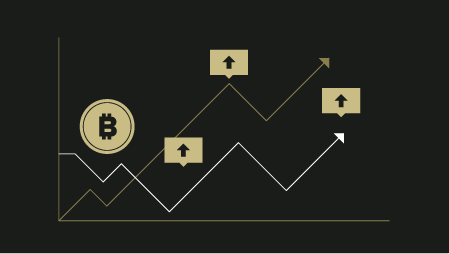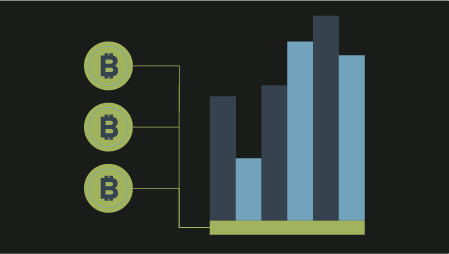Ready to learn Algorithmic Trading? Browse courses developed by industry thought leaders and Experfy in Harvard Innovation Lab.
Though you probably do not realize it, sophisticated algorithms are already dominating our everyday life, through traffic lights, train schedules, your Facebook newsfeed, and more. An area of algorithmic dominance that often goes unnoticed is in the stock market. These trading algorithms are reshaping the way trading is done on Wall Street. Investors are using algorithms designed for trading to bring greater efficiency to financial markets, and at the same time push us into uncharted financial territory.
How do these algorithms work? Kelly B. McBride, an American writer, said “What you need is a certain critical literacy about the fact you are almost always subject to an algorithm. The most powerful thing in your world now is an algorithm about which you know nothing about”. Steven Sol Skiena, the author of “The Algorithm Design Manual”, and a distinguished professor of computer science at Stony Brook University said that “in algorithms, as in life, persistence pays off”. That is true with the good, the bad, and the ugly of algorithmic trading.
Algorithm Popularity
Algorithmic trading has grown dramatically in popularity over the past decade. In the US, about 70 percent of overall trading volume is generated through algorithmic trading. The overall trading volume of algorithmic trading estimated in emerging economies like India is roughly 40 percent. A recent report estimated that the world market for algorithmic trading will grow by 10.3% CARG from 2016 to 2020. By now, most investors and regulators have gravitated toward algorithmic and High-Frequency Trading. High-Frequency Trading, a type of algorithmic trading in which large volumes of shares are bought and sold automatically at very high speeds, will remain common, even if taxed or legislated. High-Frequency trading will continually grow and become the dominant form of algorithmic trading in the future.
What Makes Up Algorithmic Trading?
Algorithmic trading is the process of buying or selling a security basing on some pre-described set of rules tested on historical data. These rules are based on indicators, charts, technical analysis, or stock fundamentals. For example, imagine you have a plan to buy a specific stock assuming it ends in losses for five successive days. You can write your rule as an algorithm and automate it so that your buy order is met when your conditions are satisfied. You may still limit your stop loss and put the target in the algorithm which can make your trading easier. The future of algorithmic trading begins with resource allocation, which is the main factor in its performance.
Advantages of Algorithmic Trading
>
Automation of Financial Markets
In the future, we will witness a high-level automation of the financial market that differs from what we see today. These algorithms will become more complex as algorithmic trading will be able to adjust to different patterns using AI. For instance, you can program certain specific rules for trading into your strategy. If markets do not turn in your favor, the program alters to match to the new market changes. Somebody still needs to monitor the progress of AI, though the system by itself becomes self-sustaining. You can expect algorithmic trading to move deeper into practical machine learning techniques that are set to handle real-time interpretation and integration of data from many different sources.
Role of Machine Learning
In future, machine learning will shape algorithms that can pick the techniques by themselves. Right now, large sums are being invested in automation intelligence and machine learning including on the algo-trading platform. Several algorithms continue to work on ‘Arbing’, a process offering variations in odds provided by different bookmakers. This process leads to the advantage of profit-making irrespective of the event’s outcome. Many large players have worked on automating the same methods.
Many believe in investing in hedge funds that trade using only algorithms. The strategy will not change in an investment made through a robot, as one can rely on its earlier performance depending on the market conditions. Investors need to learn which algorithmic procedures to trust to create a portfolio. Many fund managers and research firms expect a rising trend for algorithmic-only trading by investors.
Role of Robots
Developments of ‘robots’ in algo-trading can play a key role. They can rule the future. However, like humans not all robots are same. Some become tricky, some become cautious. Robo-experts still exist in their inception, yet this is where the algorithmic trading is progressing. Algorithms can be engraved in customized chips to have better robot-to-robot communication. Algo traders are expected to embed improved ‘algo-detecting’ capabilities to alter their systems. These can base on the real-time bids and offers made by traders, and information based on whether these bids and offers are rejected or accepted.
The investors need to take due diligence as far as these latest class of novel devices and become conversant with them. Robots are presented to investors as a trust fund product, like a hedge fund, or a structured product or a commodity pool controlled by managers. In another option, an investor can buy a robot and have it ‘self-managed’ loading it onto his own account.
In algorithmic trading, devising strategies is the most significant measure. Many are setting up several statistical techniques and modeling. In the growing period for automation where self-driving cars are on the anvil, and drones delivering pizzas, you can expect a fascinating race for investment through algorithmic trading.
Algorithms in Other Fields
Investment is not a lone field where we notice emerging algorithms. In his book ‘Automate This’, Christopher Steiner points out to a few jingles, that start a customer service call with the words “this call may be monitored…”. It is not to give us an impression of measuring a person’s ability that seemed to help us, but instead adds you to a database of a personality type. Big players in the technology field always strive to make their algorithms interpret every aspect of our life to give an impression that they can help us with our decisions.
Algorithms, Big Data and the Importance of Smart Cities [#Infographic] | StateTech Magazine
On a larger pragmatic level, advanced algorithms, that are set to deal with enormous moving parts of data, appear appropriate for tackling responses to rising problems. These can be responses to natural disasters or taking care of daily traffic flows like traffic routing, or managing civic services, like IBM’s engineering project ‘Smart Cities’.
What’s in Store?
David Easthope, a senior analyst with Boston-based consultancy Celent, says “As an overall market, I think algorithms are very much here to stay, especially if you look globally because of the increasing use of algorithms across the European equity markets”. He predicts continued heavy use of algorithms in the coming ages.
Matthew Samelson, a Senior Analyst with Aite Group, also a Boston-based consultancy, predicts “that new algorithms will continue to flood the market … It’s also going to be increasingly hard to evaluate them.” He also says. “The algorithms are going to become more advanced and more complicated, which means it becomes more important to really understand what they do for you and how well they do it.”
The future has a bright and exponential growth in store for algorithmic trading. So far in the past two decades, the large banks and large trading firms utilized with algorithmic trading. Nowadays, retailers have also jumped onto the bandwagon of algorithmic trading and witnessed significant growth. A huge rise is expected as more and more retailers continue to learn the nuances of algorithmic trading.
In Conclusion
>
Excellent courses are offered for algorithmic trading training that cover subjects like developing trading systems, risk management, backtesting, programming, statistics et al. Traders also have excellent access to the platforms of algorithmic trading to take care of their strategies. Many brokers are also expected to host servers at co-locations or in proximity locations to make orders to all their clients, including retail.





Like!! Thank you for publishing this awesome article.
Thank you. For many more updates, please subscribe to our blog
Good one! Interesting article over here. It’s pretty worth enough for me.
Thanks very nice blog!
I really like what you guys are up too. This sort of clever
work and reporting! Keep up the excellent works guys I’ve included you guys to my personal blogroll.